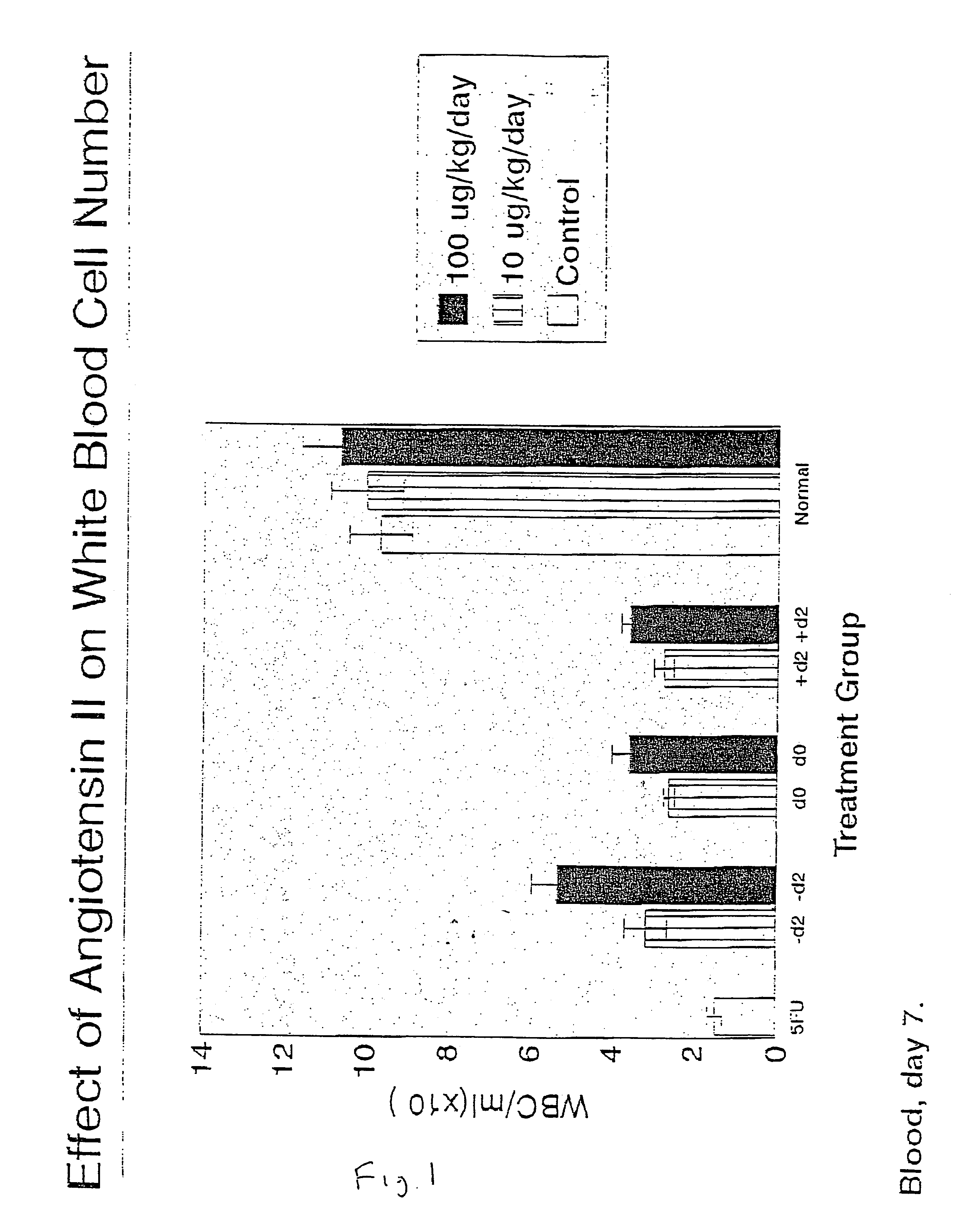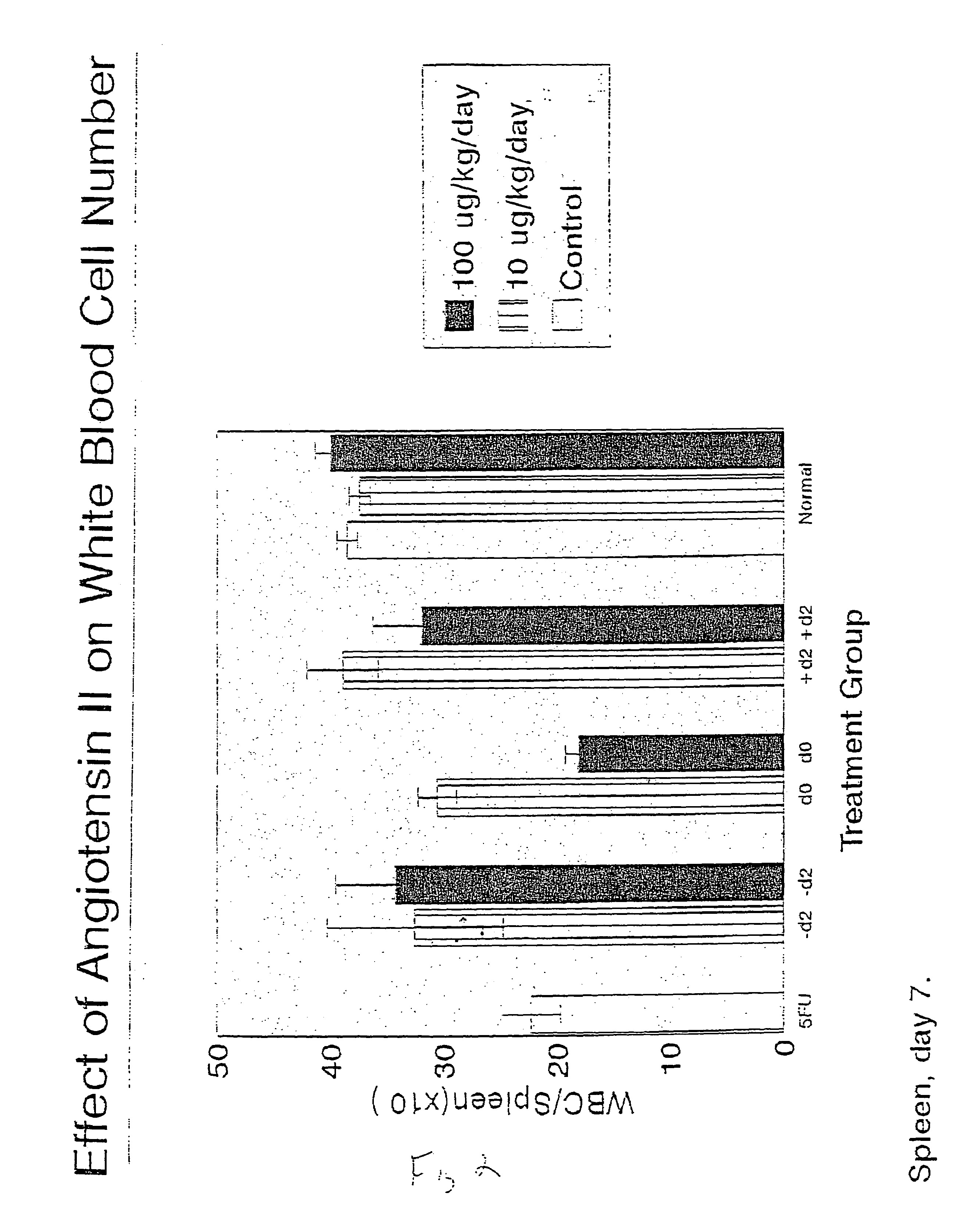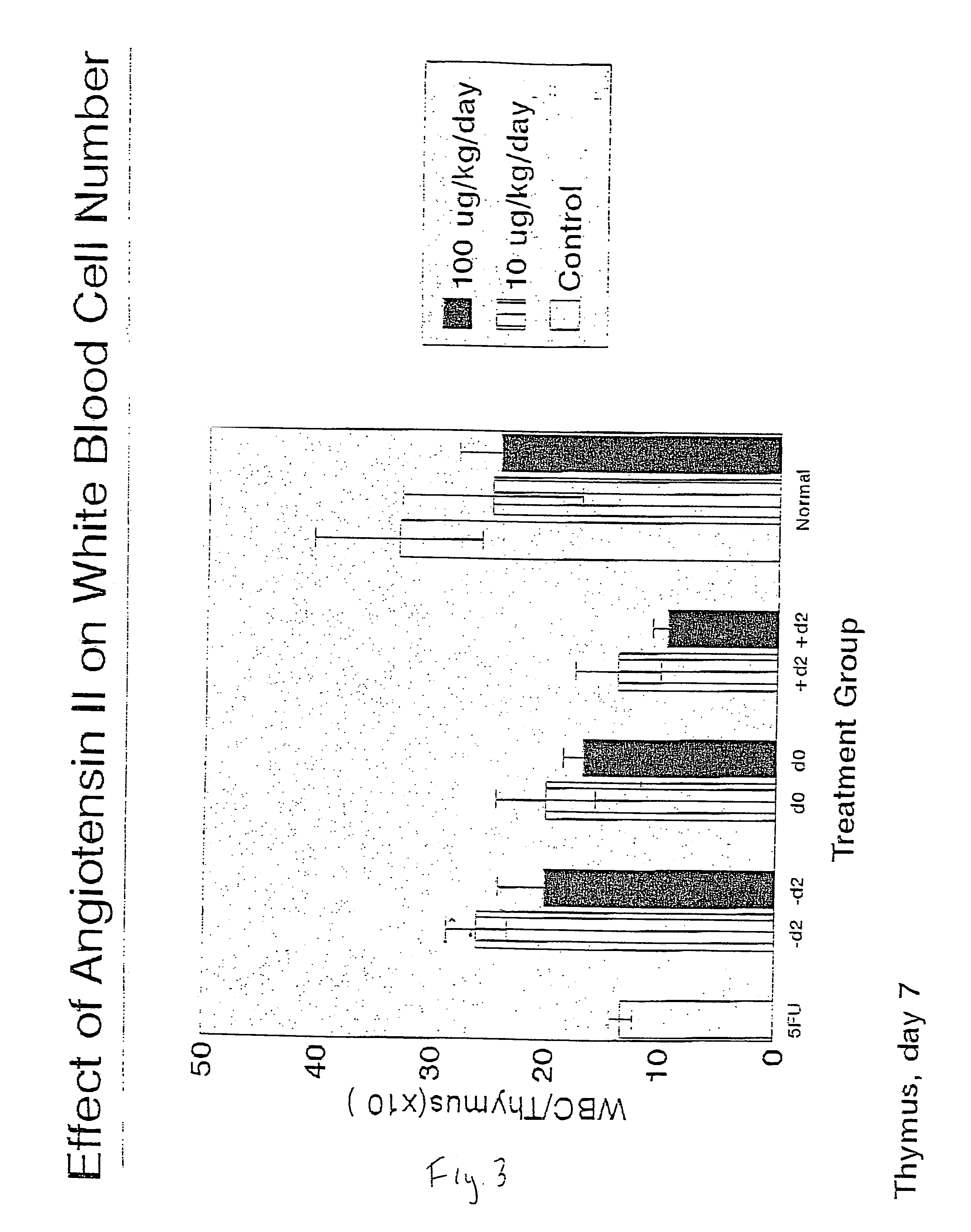Method for promoting hematopoietic and mesenchymal cell proliferation and differentiation
- Summary
- Abstract
- Description
- Claims
- Application Information
AI Technical Summary
Benefits of technology
Problems solved by technology
Method used
Image
Examples
example 1
Effect of AII on White Blood Cell Mobilization and Recovery after 5 Fluorouracil Treatment
[0127]This study was designed to test the effect of AII on the recovery of white blood cells in lymphoid organs and on the level of granulocyte macrophage precursors (CFU-GM) in the blood (ie: mobilization), spleen (mobilization), and bone marrow (recovery) after intravenous administration of 5-fluorouracil (5FU).
[0128]Subcutaneous administration of AII (either 10 or 100 μg / kg / day) was initiated either two days before (−d2), the day of (d0), or two days after (d2) intravenous administration of 5FU. On either day 7 or 14 after 5FU administration, the animals were necropsied and the spleen, thymus, peripheral blood, and bone marrow were harvested. The number of white blood cells in each of the lymphoid organs, or the number of CFU-GM present in all the organs except the thymus, were then assessed. The number of white blood cells per lymphoid organ was assessed after (1) dissociation of the tissue...
example 2
Effect of AII Analogues and Fragments on White Blood Cell Mobilization and Recovery after 5Fluorouracil Treatment
[0129]The method was conducted as described above in Example 1, except that mice were injected subcutaneously with 150 mg / kg body weight of 5FU, and AII peptide analogues and fragments were tested. Administration of the peptides (see Table 3) was begun 2 days after and continued until 10 days after 5FU administration, at which time-the mice were euthenized for evaluation of bone marrow and blood GM-CFU progenitors. On days 4 and 7 after 5FU administration, blood was taken under anesthesia from the retro-orbital sinus. On day 10, blood was taken by cardiac puncture.
[0130]The data for these experiments is shown in FIGS. 21–30, and demonstrate that all peptides tested accelerated the recovery of white blood cells after chemotherapy (FIGS. 21–26), increased the number of GM-CFU progenitors in the bone marrow (FIGS. 27–28), and increased the mobilization of GM-CFU progenitors ...
example 3
Effect of AII(1–7) on Hematopoietic Recovery after Cytoxan
[0132]In this study, female C57B1 / 6 mice were injected with 200 mg / kg cyclophosphamide (“cytoxan”) intravenously. Administration of AII(1–7) by subcutaneous injection was begun 2 days before or 2 days after administration of the antineoplastic and continued daily until necropsy for evaluation of mature formed blood elements in the circulation and the number of GM-CFU in the bone marrow and peripheral blood. On days 5, 9, 14, 21 and 28 after cytoxan administration, blood was taken under metofane anesthesia from the retro-orbital sinus to assess white blood cell (WBC) and platelet number.
[0133]The data showed that AII(1–7) accelerated the recovery of WBC after intravenous administration of cyclophosphamide when treatment with peptides was initiated two days after the chemotherapeutic (FIG. 31a). The increase in WBC number was observed within 9 days after cyclophosphamide treatment. However, if AII(1–7) treatment was initiated t...
PUM
| Property | Measurement | Unit |
|---|---|---|
| Dimensionless property | aaaaa | aaaaa |
| Dimensionless property | aaaaa | aaaaa |
| Body weight | aaaaa | aaaaa |
Abstract
Description
Claims
Application Information
 Login to View More
Login to View More - R&D
- Intellectual Property
- Life Sciences
- Materials
- Tech Scout
- Unparalleled Data Quality
- Higher Quality Content
- 60% Fewer Hallucinations
Browse by: Latest US Patents, China's latest patents, Technical Efficacy Thesaurus, Application Domain, Technology Topic, Popular Technical Reports.
© 2025 PatSnap. All rights reserved.Legal|Privacy policy|Modern Slavery Act Transparency Statement|Sitemap|About US| Contact US: help@patsnap.com



